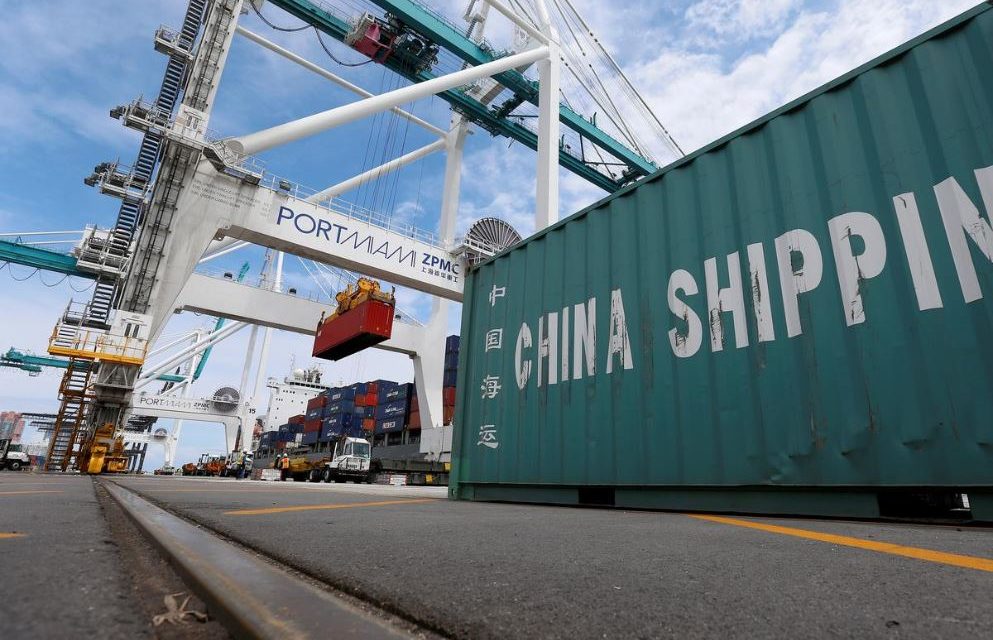The report from the Commerce Department on Thursday does not capture a recent escalation in trade tensions between the U.S. and China, as well as with Mexico. President Donald Trump in early May slapped additional tariffs of up to 25% on $200 billion of Chinese goods, which prompted retaliation by Beijing.
Last week, Trump announced he would impose a tariff on all goods from Mexico in a bid to stem the tide of illegal immigration across the U.S.-Mexican border. Negotiations are ongoing to prevent the duties from kicking in at 5% on June 10.
“U.S. trade with the world is slowing dramatically and the odds are rising that the economy is going to take a big hit,” said Chris Rupkey, chief economist at MUFG in New York.
“Globalization and expanded trade between nations benefited everyone and now the reductions in trade volumes between nations are going to subtract those benefits worldwide from everyone.”The U.S. trade deficit fell 2.1% to $50.8 billion in April. Data for March was revised up to show the trade gap increasing to $51.9 billion instead of the previously reported $50.0 billion. Economists polled by Reuters had forecast the trade gap would widen to $50.7 billion in April.
The politically sensitive goods trade deficit with China surged 29.7% to $26.9 billion. The gap with Mexico fell 14.1% to $8.2 billion in April. Washington has secured a trade pact with Mexico and Canada, but there are fears it could be scuttled by Trump’s intention to impose duties on Mexican goods.
Economists said waging trade wars with China and Mexico, both major U.S. trading partners, would exert more pressure on the economy, which is already slowing after being temporarily boosted by exports, an accumulation of inventories and defense spending in the first quarter.
“The president seems intent on imposing them (duties on Mexican goods),” said Joel Naroff, chief economist at Naroff Economic Advisors in Holland, Pennsylvania. “That would mean we would be fighting a two-front trade war and, if that lasts long, it is almost certainly going to sap the energy out of both consumers and businesses.”
Federal Reserve Chairman Jerome Powell said on Tuesday the central bank was closely monitoring the implications of the trade tensions on the economy and would “act as appropriate to sustain the expansion.”
The dollar fell against a basket of currencies, while U.S. Treasury prices were mostly trading higher. Stocks on Wall Street edged up.

